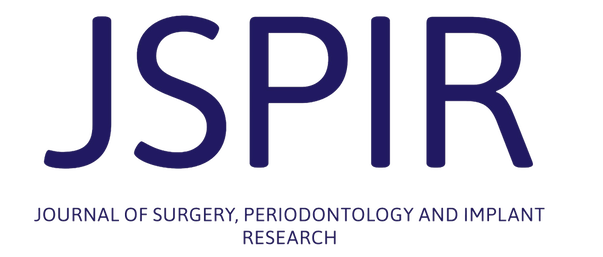Scientific Misconduct
Data Falsification/Fabrication
Changing or omitting data in order to make it fit with a desired outcome is considered falsification of research . Fabrication of research involves making up and reporting data. Both are considered forms of research fraud. Authors must ensure all data contained within their manuscript is accurate and correctly represents their work. Authors are expected to retain all raw data represented in their manuscripts. If the original data cannot be produced on request, acceptance of a manuscript may be declined.
Plagiarism
Authors must not use the words, figures, or ideas of others without attribution. All sources must be cited at the point they are used, and reuse of wording must be limited and be attributed or quoted in the text.
JSPIR uses Crossref Similarity Check (iThenticate) software to detect submissions that overlap with published and submitted manuscripts.
Duplication
All manuscripts submitted to JSPIR must be original and not published or under consideration for publication elsewhere. This includes articles previously published in another language. Authors must clearly state to the editor whether aspects of the work contained in the current submission has already been reported in a similarly related submission or publication.
For more information about content from thesis , please refer to COPE’s guidelines for more details.
Redundancy
Redundancy involves presenting substantially overlapping (major overlap) data in two or more publications.
Another type of redundancy is the considered the minor overlap ("salami-publishing" with some element of redundancy) or legitimate repetition or re-analysis (sub-group, extended follow-up or repeated methods).
Image Manipulation
Images contained in the manuscripts, must be accurate and free from manipulation with the intent of enhance, move, remove, obscure or introduce specific features. Only adjustments to brightness, contrast or color balance are acceptable.
Authorship
Authorship must be strictly limited to those who have made a considerable contribution to the conception, planning, execution and writing of the study. JSPIR follow the International Committee of Medical Journal Editors (ICMJE) authorship recommendations.
Changing or omitting data in order to make it fit with a desired outcome is considered falsification of research . Fabrication of research involves making up and reporting data. Both are considered forms of research fraud. Authors must ensure all data contained within their manuscript is accurate and correctly represents their work. Authors are expected to retain all raw data represented in their manuscripts. If the original data cannot be produced on request, acceptance of a manuscript may be declined.
Plagiarism
Authors must not use the words, figures, or ideas of others without attribution. All sources must be cited at the point they are used, and reuse of wording must be limited and be attributed or quoted in the text.
JSPIR uses Crossref Similarity Check (iThenticate) software to detect submissions that overlap with published and submitted manuscripts.
Duplication
All manuscripts submitted to JSPIR must be original and not published or under consideration for publication elsewhere. This includes articles previously published in another language. Authors must clearly state to the editor whether aspects of the work contained in the current submission has already been reported in a similarly related submission or publication.
For more information about content from thesis , please refer to COPE’s guidelines for more details.
Redundancy
Redundancy involves presenting substantially overlapping (major overlap) data in two or more publications.
Another type of redundancy is the considered the minor overlap ("salami-publishing" with some element of redundancy) or legitimate repetition or re-analysis (sub-group, extended follow-up or repeated methods).
Image Manipulation
Images contained in the manuscripts, must be accurate and free from manipulation with the intent of enhance, move, remove, obscure or introduce specific features. Only adjustments to brightness, contrast or color balance are acceptable.
Authorship
Authorship must be strictly limited to those who have made a considerable contribution to the conception, planning, execution and writing of the study. JSPIR follow the International Committee of Medical Journal Editors (ICMJE) authorship recommendations.
